Law Librarians Focusing More on Competitive Intelligence, Survey Shows
The focus is shifting toward more business intelligence research for partners and away from client-facing work, the survey results indicated.
July 06, 2018 at 07:28 PM
7 minute read

The once-quiet law firm library has transformed in recent years into a hothouse for business development research. But that also means firms' library staff members are billing less of their hourly work to clients and coping with shrinking staff budgets.
All those trends were apparent in the responses received in The American Lawyer's annual Survey of Law Firm Knowledge Management, Library and Research Professionals, which we have conducted each of the past nine years.
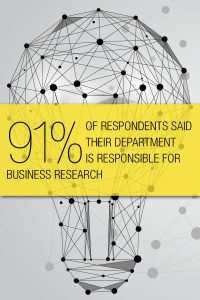 This year's survey results show that for firm librarians the focus is switching from practice of law research to business development research—sometimes referred to as competitive intelligence. Specifically, 75 percent of respondents expect to see requests for business of law research increase in the near future, as opposed to 52 percent expecting the same for practice of law research.
This year's survey results show that for firm librarians the focus is switching from practice of law research to business development research—sometimes referred to as competitive intelligence. Specifically, 75 percent of respondents expect to see requests for business of law research increase in the near future, as opposed to 52 percent expecting the same for practice of law research.
Asked if the business of law has overtaken the practice of law as their researchers' principle focus, 31 percent of respondents said it had. More significantly, 84 percent of respondents said they believe their departments should be the primary provider of business of law research for their firms.
“In the old days, we used to support the practice of law. Now, we are doing research for business development and we have a very good relationship with our marketing people. We also work with individual lawyers,” says Charles Frey, the director of the library at Munger, Tolles & Olson.
Have Frey or other library directors gotten more staff for the new assignments?
“It has been one of the challenges,” Frey says. “We have maintained the same staff, but reallocated their time.”
Likewise, survey respondents reported that their departments' staff budgets shrunk slightly 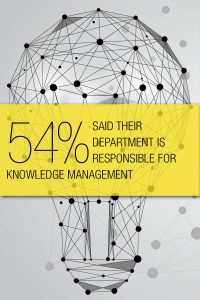 from 2017, when they averaged $842,742, to this year, when they averaged $837,697.
from 2017, when they averaged $842,742, to this year, when they averaged $837,697.
Their departments' budgets for print and electronic resources have gone down from $8.2 million in 2017 to $3.2 million this year, a steep 60 percent drop. Some of those cutbacks reflect multiyear subscriptions expiring for print products that were not renewed, according to the library leaders who spoke for this article. There was also an outlier in the data for 2017 that drove last year's figure so high. Removing that outlier brings the 2017 data to $3.75 million, which would make 2018's figures just 14 percent lower than 2017.
Survey results are impacted by the number and composition of respondents, which change from year to year. The data comes from dozens of firms in the Am Law 200 and beyond.
In the survey, 55 percent of respondents reported that their department's head count was less than needed. None reported that their department's budget was more than needed, but 73 percent reported their budget was “about right” and another 27 percent reported their budget was less than needed.
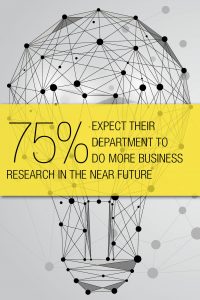 The library leaders who spoke for this report declined to talk in detail about their own firms' reduced budgets.
The library leaders who spoke for this report declined to talk in detail about their own firms' reduced budgets.
This year, survey respondents reported that they expected their library departments to generate $328,207 on average in gross revenue from hours billed for services, compared with $938,812 in the previous year, a 65 percent drop. But it should be noted that the $938,812 figure reported in 2017 was a bit of an outlier, driven largely by a lower response rate to that question than in prior years or this year. The billable hour revenue expectations for 2018 are more in line with what we have seen in recent years, with the exception of 2017, and are slightly up from what was reported in 2016.
Despite potentially fewer hours billed to clients and the budget cuts, library staff members have had to up their game to meet the growing business development needs of their firms. Frey's staff “has to have more understanding of financial type of information” than previously required, he says.
For Jill Strand, the senior manager of library and knowledge information systems at Fish & Richardson, the focus on business development research is nothing new.
“I don't see it as a change. It's always been part of our mandate,” Strand, who has worked at two other firms' libraries, says.
“I've always made an effort to partner with the marketing department. They know what they want to get. We know where to get it,” Strand says. “We can help focus and hone the ideas.”
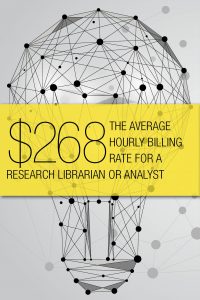 A recent joint project between the two departments at Fish & Richardson led to lawyers receiving individual aggregated news feeds, largely containing information about clients' industry sectors.
A recent joint project between the two departments at Fish & Richardson led to lawyers receiving individual aggregated news feeds, largely containing information about clients' industry sectors.
Even though focusing on business development research is not new for Strand, it has grown more intense recently, she says.
“There has been more competition,” she says. “Things are moving much more rapidly. It takes a lot more work to keep up.”
But her staff has not grown. It's the same size as last year, she says.
At Pillsbury Winthrop Shaw Pittman, research services and business intelligence departments knit their resources together to make them more effective and stretch further, according to Eva-Marie Nye, director of research services, and Lynne Kilgore, manager of business intelligence. The two describe a close and collaborative relationship.
“A lot of our requests come through the marketing and development team, who are dealing with attorneys and C-suites. Those get funneled through Lynne,” Nye says. “She has a small staff and I have large staff, so she comes to me, although I don't have people solely dedicated to this.”
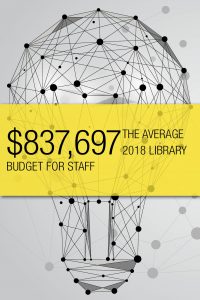 What about an increased budget for the increased responsibilities? Not happening, the two say.
What about an increased budget for the increased responsibilities? Not happening, the two say.
“We will be doing more with the same,” Nye says.
Will artificial intelligence help law firm librarians stretch their budgets further?
“We've been looking carefully at the AI and analytics products. They come close, but we want to be really judicious about our investments,” Nye says. “There are some tools that you can check some filters and get a pie chart, but it's not exactly the right pie chart so that we are really certain of the result. Or it's not exactly the right data.”
The speed at which providers introduce new AI research tools to the market also increases librarians' workloads.
“We are spending more time evaluating new tools,” Nye says. “There is so much more coming out.”
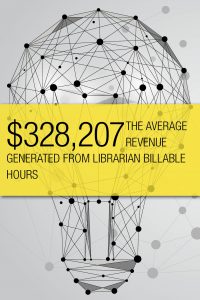 Similarly, the training on how to use the tools takes time.
Similarly, the training on how to use the tools takes time.
“Part of our job has always been making sure that our attorneys can use the tools,” Nye says.
These days, all the software upgrades and new product releases make those tasks a nonstop responsibility, she says.
At Munger Tolles, Frey senses a growing workload, ironically in part because AI and software tools help make research more efficient.
“One of the things that the library is being called upon to be an expert on are the new products and potential products,” Frey says. With each new product, he has to address: “Is this a legitimate thing that can be useful to us? Or is it just some kind of flash in the pan? Is the data legitimate? What are the limitations?”
“It's a daily activity,” he says.
Email: [email protected]
This content has been archived. It is available through our partners, LexisNexis® and Bloomberg Law.
To view this content, please continue to their sites.
Not a Lexis Subscriber?
Subscribe Now
Not a Bloomberg Law Subscriber?
Subscribe Now
NOT FOR REPRINT
© 2025 ALM Global, LLC, All Rights Reserved. Request academic re-use from www.copyright.com. All other uses, submit a request to [email protected]. For more information visit Asset & Logo Licensing.
You Might Like
View All
Will a Market Dominated by Small- to Mid-Cap Deals Give Rise to a Dark Horse US Firm in China?


Why U.S. Big Law Was Mostly Sidelined in Asian IPOs in New York Last Year

Trump RTO Mandates Won’t Disrupt Big Law Policies—But Client Expectations Might
6 minute readTrending Stories
- 1LexisNexis Announces Public Availability of Personalized AI Assistant Protégé
- 2Some Thoughts on What It Takes to Connect With Millennial Jurors
- 3Artificial Wisdom or Automated Folly? Practical Considerations for Arbitration Practitioners to Address the AI Conundrum
- 4The New Global M&A Kings All Have Something in Common
- 5Big Law Aims to Make DEI Less Divisive in Trump's Second Term
Who Got The Work
J. Brugh Lower of Gibbons has entered an appearance for industrial equipment supplier Devco Corporation in a pending trademark infringement lawsuit. The suit, accusing the defendant of selling knock-off Graco products, was filed Dec. 18 in New Jersey District Court by Rivkin Radler on behalf of Graco Inc. and Graco Minnesota. The case, assigned to U.S. District Judge Zahid N. Quraishi, is 3:24-cv-11294, Graco Inc. et al v. Devco Corporation.
Who Got The Work
Rebecca Maller-Stein and Kent A. Yalowitz of Arnold & Porter Kaye Scholer have entered their appearances for Hanaco Venture Capital and its executives, Lior Prosor and David Frankel, in a pending securities lawsuit. The action, filed on Dec. 24 in New York Southern District Court by Zell, Aron & Co. on behalf of Goldeneye Advisors, accuses the defendants of negligently and fraudulently managing the plaintiff's $1 million investment. The case, assigned to U.S. District Judge Vernon S. Broderick, is 1:24-cv-09918, Goldeneye Advisors, LLC v. Hanaco Venture Capital, Ltd. et al.
Who Got The Work
Attorneys from A&O Shearman has stepped in as defense counsel for Toronto-Dominion Bank and other defendants in a pending securities class action. The suit, filed Dec. 11 in New York Southern District Court by Bleichmar Fonti & Auld, accuses the defendants of concealing the bank's 'pervasive' deficiencies in regards to its compliance with the Bank Secrecy Act and the quality of its anti-money laundering controls. The case, assigned to U.S. District Judge Arun Subramanian, is 1:24-cv-09445, Gonzalez v. The Toronto-Dominion Bank et al.
Who Got The Work
Crown Castle International, a Pennsylvania company providing shared communications infrastructure, has turned to Luke D. Wolf of Gordon Rees Scully Mansukhani to fend off a pending breach-of-contract lawsuit. The court action, filed Nov. 25 in Michigan Eastern District Court by Hooper Hathaway PC on behalf of The Town Residences LLC, accuses Crown Castle of failing to transfer approximately $30,000 in utility payments from T-Mobile in breach of a roof-top lease and assignment agreement. The case, assigned to U.S. District Judge Susan K. Declercq, is 2:24-cv-13131, The Town Residences LLC v. T-Mobile US, Inc. et al.
Who Got The Work
Wilfred P. Coronato and Daniel M. Schwartz of McCarter & English have stepped in as defense counsel to Electrolux Home Products Inc. in a pending product liability lawsuit. The court action, filed Nov. 26 in New York Eastern District Court by Poulos Lopiccolo PC and Nagel Rice LLP on behalf of David Stern, alleges that the defendant's refrigerators’ drawers and shelving repeatedly break and fall apart within months after purchase. The case, assigned to U.S. District Judge Joan M. Azrack, is 2:24-cv-08204, Stern v. Electrolux Home Products, Inc.
Featured Firms
Law Offices of Gary Martin Hays & Associates, P.C.
(470) 294-1674
Law Offices of Mark E. Salomone
(857) 444-6468
Smith & Hassler
(713) 739-1250










